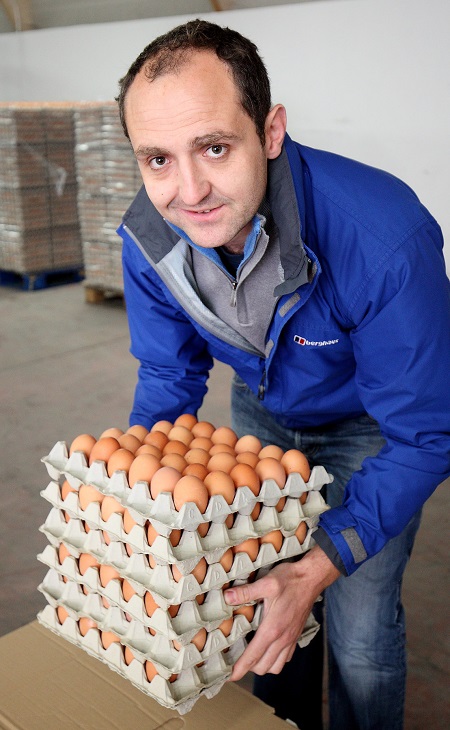By UFU poultry chairman, Martyn Blair
The last 15 months have been a frustrating period for many poultry producers in Northern Ireland. In the broader context, we have witnessed the collapse of our national devolved government at a time when industry most needs elected representatives to ensure the interests of Northern Ireland are heard within the wider BREXIT debate. Additionally, many poultry producers are now finding themselves in financial difficulties through no fault of their own, as a result of the government failings in the Renewable Heat Incentive (RHI) scheme.
Based on a similar design to the RHI scheme in England, the Northern Ireland scheme was established in 2012 to encourage local businesses to make the switch to renewable heat sources. The target was for 4 per cent of NI’s heat consumption to come from renewables by 2015, with that figure increasing to 10 per cent by 2020. Many businesses took up the scheme in good faith, keen to implement a scheme that was seen as mutually beneficial – society as a whole was able to reduce its environmental footprint and local businesses were rewarded for delivering this public good. However, where the scheme in NI fundamentally differed to that in England was around implementing cost control measures. This was a major failing on behalf of the government and now farmers are paying the price for the gross incompetence of officials. In spring 2017, local political parties pushed through emergency legislation to reduce the tariff rate for 99kw boilers to 6.7p/kw for the first 1,314 hours (130,086kws per annum) and down to 1.5p/kw thereafter, with a cap imposed at 400,000kws per annum above which a tariff of 0p was introduced.
At the time, this amendment was to be a temporary measure to protect wider public finances whilst buying government time to consult with stakeholders to establish a financially sustainable arrangement for the future. Little concern appears to have been given to the financial impact on farm businesses that had committed to the scheme and made additional investments on what was promised to be a secure financial income for the next 20 years. Today this arrangement has now been in place for almost a year due to the political impasse, the ongoing challenge into the legality of the retrospective tariff amendment and the public enquiry to establish who is at fault for this debacle. As a result, there appears to have been little to no work completed on seeking to establish a sustainable way forward. Recently, Westminster extended the amended tariff further to buy more time to consult. As a result, claimants of other renewable schemes are increasingly nervous, as there is the potential for contagion to other schemes (in NI or GB) if the precedent of a retrospective tariff change is accepted as legal by the Court.
Whilst all of this turmoil continues to grab the media headlines, it is frequently the individuals affected who are forgotten and overlooked. In my role as UFU poultry chairman, I’m frequently contacted by producers facing significant cash flow issues as a result of the amended tariffs. Those with a genuine need for the heat like poultry producers cannot simply turn off their boilers. However, with wood pellets now costing over 4p/kw to buy and the cost of the capital investment still needing to be repaid, many producers are reporting being over £1,000 per boiler per month worse off now than when they were using old gas heating systems. In some instances, I am hearing of individuals having to sell land or cattle in order to pay for wood pellets. In other instances, I am hearing of producers having to refinance their loan repayments.
To their credit, boiler owners have been incredibly stoic throughout this debacle to date. They mobilised quickly to form the Renewable Heat Association of Northern Ireland (RHANI) so that boiler owners could speak coherently with one voice. RHANI continues to regularly update producers and to fight on the behalf of all genuine boiler owners. However, despite the insistent mud throwing and political blame games that surround RHI, one thing must not be forgotten and that is that hundreds of genuine farming families are now suffering as a result of governmental administrative failures and this situation must be amended as quickly as possible for the mutual benefit of all parties involved and the longer term sustainability of the NI poultry industry and the environment.


